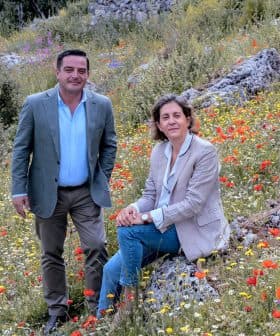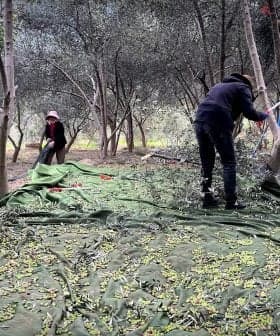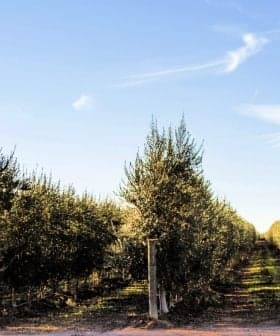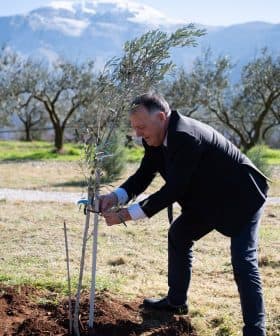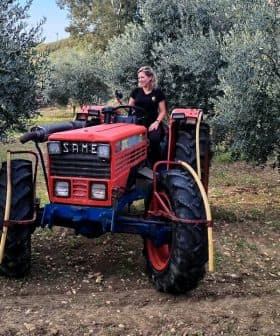Researchers Test New Olive Varieties to Improve Sustainability
A team in Andalusia is testing a hedge cultivation system that could be more profitable for growers and sustainable for the environment.
Researchers in Andalusia are experimenting with new olive varieties to create a sustainable farming system that minimizes environmental impact, with the goal of creating biodiverse hedges that allow for mechanized harvesting and attract beneficial wildlife. The new medium-density olive grove system aims to add value to traditionally-produced olive oils and compete with super-high-density groves, with preliminary results expected in 2024.
Researchers in Andalusia are experimenting with new olive varieties to find ones that could be more sustainable, both for farmers and the environment.
The main intention of the trial is to identify new varieties of olive trees that adapt to the hedge cultivation system, using cultivation techniques that have minimal impact on the environment, but can be used in any grove.
On a farm in Lora del Río, just outside of the provincial capital of Seville, researchers from the Andalusian Institute for Agricultural and Fisheries Research (IFAPA) and agronomic engineers from Ingeoliva have planted several adapted olive varieties in a system of hedges.
“The main intention of the trial is to identify new varieties of olive trees that adapt to the hedge cultivation system, using cultivation techniques that have minimal impact on the environment, but can be used in any grove,” Ingeoliva CEO Enrique de la Torre told Olive Oil Times.
“We have adapted varieties of more reluctant olive trees such as Picudo, Hojiblanca, Picual and Cornicabra, as well as almond and citrus trees to this system,” he added.
See Also:Sustainability NewsIn this medium-density system, the trees are spaced out with 1.50 meters (4.9 feet) between each one and 5.0 meters (16.4 feet) between rows. These hedges will allow both for mechanized harvesting and the creation of a biodiverse environment.
De la Torre emphasized that the idea is to create an ecosystem around the olive trees, with different types of flowers, grasses and shrubs creating homes for native wildlife, preventing erosion and allowing for natural air circulation.
“We want the planted trees to be in better conditions and in balance with the ecosystem, that’s why we make lines of trees with wider rows that allow better use of sunlight and water resources; wide spaces between which we plant a vegetative cover with selected native seeds that fix nutrients in the soil and attract beneficial wildlife,” he said. “All of this means that the trees planted are more productive and less affected by pests.”
Last year, the amount of land covered by organic olive groves in Spain increased by 4.8 percent compared with 2018, according to the country’s Ministry of Agriculture, Fisheries and Food.
Aside from the positive environmental impacts of these types of groves, one of the driving forces behind the increase in organic olive cultivation is the prospect of adding value to traditionally-produced olive oils.
After more than 18 months of historically low olive oil prices, farmers and local officials have been seeking new ways to add value for olive growers.
De la Torre argues that this new type of biodiverse, medium-density olive grove will also benefit from the added value provided by organic cultivation and allow farmers to compete with super-high-density groves.
“They will be improved varieties, interesting for their productivity, fat yield and oil composition,” he said. “For this we must let them grow and produce… We hope to have the first preliminary results of the trial after four years.”
In 2024, de la Torre and the researchers from IFAPA will analyze the first harvest from this experimental grove. If all goes well, the goal will be to quickly scale up and implement this cultivation system throughout Andalusia.


